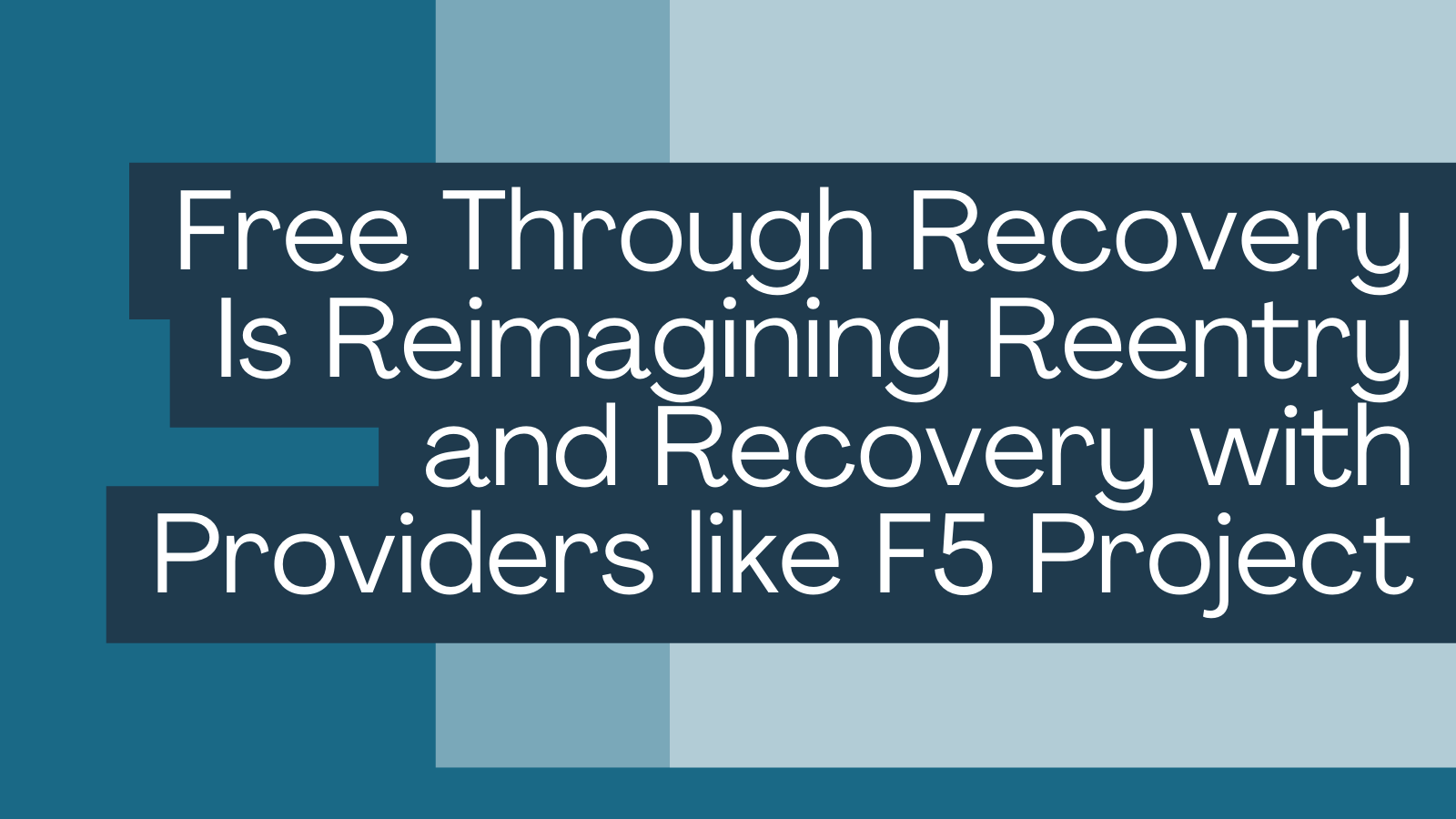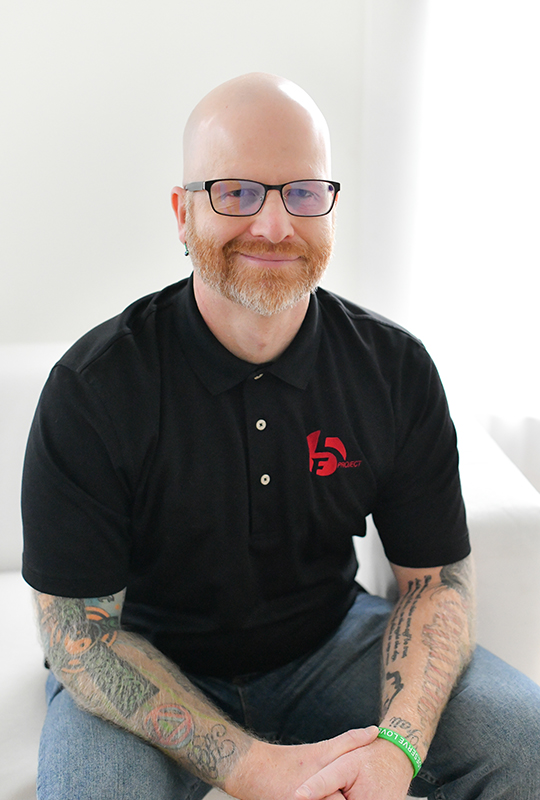Free Through Recovery (FTR) is a community-based behavioral health program designed to increase access to recovery support services for individuals with serious behavioral health conditions who are under community supervision or transitioning out of prison. FTR is a partnership between the North Dakota Department of Health and Human Services and the Department of Corrections and Rehabilitation (DOCR).
The mission of FTR is to improve healthcare outcomes and reduce recidivism by delivering high-quality community behavioral health services linked with effective community supervision. The goals are to improve engagement in quality services and to provide access to individualized services that are responsive to each person’s specific needs.
Since its launch in 2018, FTR has helped thousands of participants, nearly half of whom have co-occurring mental health conditions and substance use disorders, through the following strategies:
- Care Coordination: Working towards participants’ long- and short-term goals with assistance from a care coordinator.
- Recovery Services: Facilitating participants’ access to individualized resources necessary for leading a healthy and fulfilling life, with the understanding that recovery looks different for everyone.
- Peer Support: Connecting individuals to a peer who has similar lived experience.
Referrals for the program are initiated by an individual’s parole or probation officer or a case manager at a DOCR facility. The individual selects the behavioral health supports provider of their choice in their home community. There are more than 50 providers across the state, including private providers, peer-run organizations, non-traditional providers (e.g., faith-based or cultural-specific groups), and other individuals who meet the minimum qualifications.
The program is founded on an outcome- and performance-based payment system. By linking reimbursement to outcomes, providers can offer alternative recovery services, depending on what works for the individual. Services are designed to meet individuals’ unique needs, such as assistance with transportation, housing, navigation to substance use treatment, or connection to other recovery resources.
F5 Project
One of the FTR providers, F5 Project, provides FTR services in all eight regions of North Dakota. Adam Martin, F5 Project CEO and founder, was intent on helping others overcome the same painful challenges he experienced exiting incarceration.
“F5 Project has a really cool story behind it,” explains Cody Stanley, chief program officer. “Adam was tired of seeing his friends coming out of custody with no consistent support or safety net. He’d let guys crash on his couch and realized housing was a major component of the struggle. So, he secured a small rental unit, which was followed by other housing units. Adam coined ‘F5’ on his five felonies, but it took on new meaning when someone likened it to the F5 key on the computer, which refreshes the screen.”
Now boasting 7 project houses in 2 states, offices in 8 cities, and more than 50 staff members, F5 Project has helped more than 30,000 people refresh their lives.
F5 Project’s transitional living program provides a structured, three-phase program to help individuals reintegrate back into the community: Phase 1—Reintegration, Phase 2—Stability, and Phase 3—Maintenance. All phases support participants in addressing critical recovery needs, including participating in recovery groups and treatment, developing a budget, obtaining and maintaining employment, remaining free of illicit or unprescribed substances, and paying criminal justice fines or fees and child support. F5 Project participants completing the program receive assistance from F5 Project in identifying and obtaining independent housing prior to graduation, as well as a graduation certificate.
F5 Project also offers similar care coordination, recovery services, and peer support to individuals who are not involved with the criminal justice system through Community Connect, as well as to individuals who need longer-term care and supports through North Dakota’s Medicaid 1915(i) program. Including their initiatives to battle food insecurity and cultivate fair chance employers, F5 Project serves approximately 560 people per month.
Success stories are plentiful: One client used to be on a first-name basis with every single parole and probation officer—both state and federal—in the city; now he runs the day-to-day operations of F5 Project’s transitional living houses in that same city and just celebrated 700 days of abstinence from substance use. A care coordinator, described as a “rock star” by her colleagues for the work she does, first encountered F5 Project when she was recovering from alcohol poisoning in the hospital.
“At least half of our staff are in some phase of solid recovery, so we know what our clients are going through, which partially explains our success,” observes Stanley. “The other defining factor of F5 Project is what we refer to as ‘ugly grace.’ It can be challenging to work with people who, for example, have violent records, but we extend grace to everyone—give them a second chance—regardless of where they come from or what they did. It’s not just our job; it’s our passion.”
For more information about FTR, go to Free Through Recovery | Health and Human Services North Dakota, or email dhsbhd@nd.gov.
For more information about F5 Project, go to https://www.f5project.org/contact/, contact info@f5project.org, or call (701) 210-2491.
Like what you’ve read? Sign up to receive the monthly GAINS eNews!



